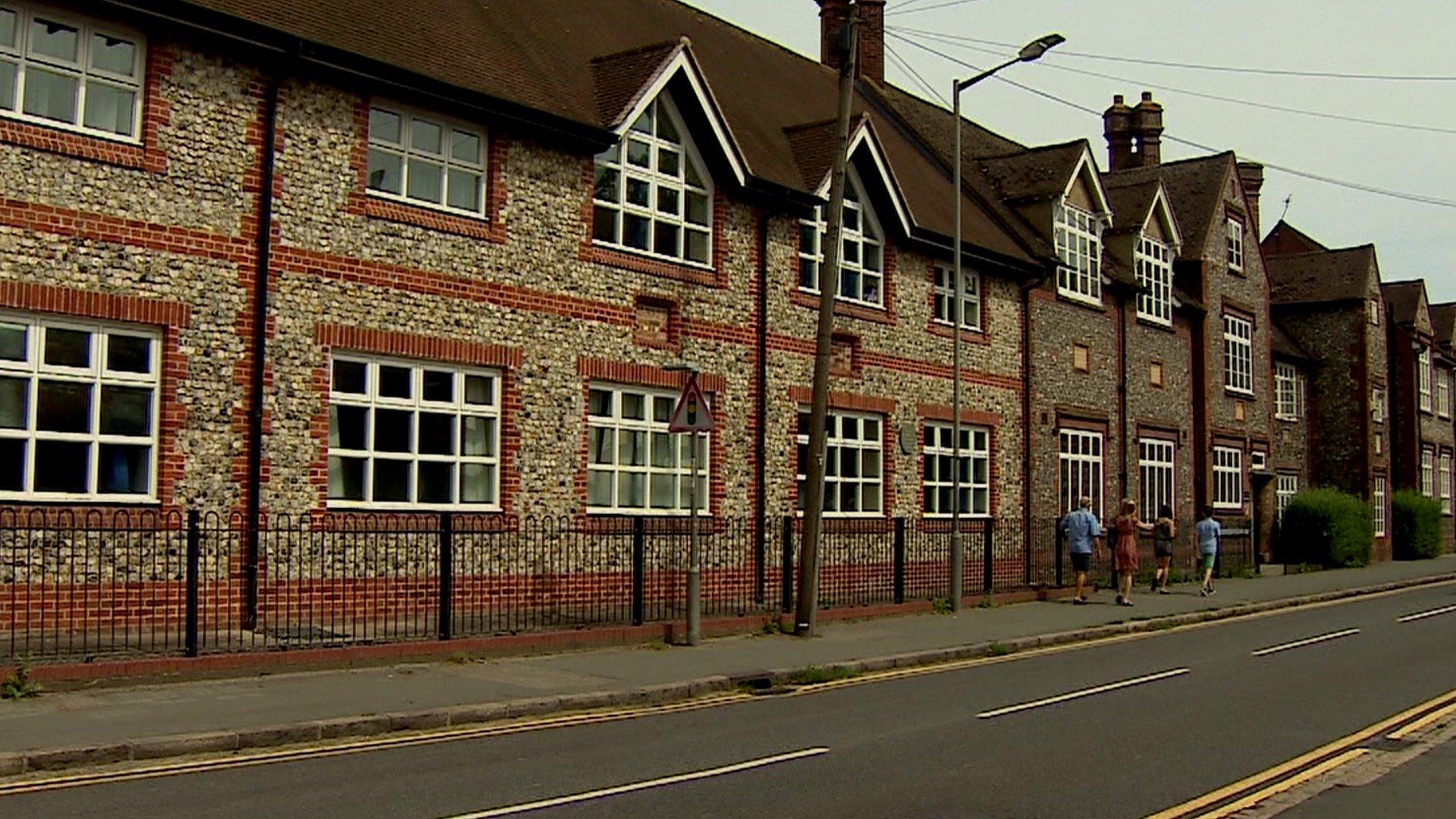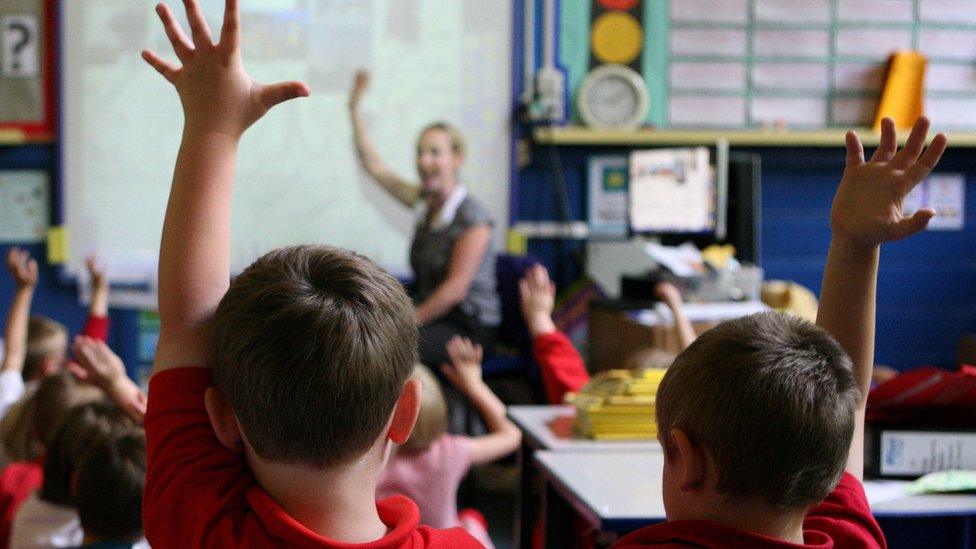The Grammar School Challenge
- Published

Sir William Borlase's Grammar School
There are few subjects as controversial in education as grammar schools.
For some, they represent the pursuit of excellence and the opportunity for bright children to be challenged to excel, and for others, the entrenching of advantage and privilege at the expense of the majority of children.
And for the first time in years they are controversially firmly back on the agenda, with a grammar school educated Prime Minister who has expressed sympathy for demands for one in her own constituency.
Lifting the ban on grammar schools would have a huge symbolic value for some within the Conservative party.
But it would be a strange signal on social mobility from a new Prime Minister who has promised to govern for those who feel shut out of opportunity.
And it is social mobility which Education Secretary Justine Greening has been told to put at the centre of education policy.
The research by the Institute for Fiscal Studies and Cambridge University in 2013 found some striking social differences in grammar school intakes.
If you look just at the children gaining the top level in their end of primary tests, the chances of a child receiving free school meals going to grammar school are lower than their better off classmates.
So take two children who are at the top of their class, and the poorer child is less likely to end up in the academically selective grammar school.
Some schools and counties have tried to mitigate this effect in tests, but they are up against the buying power of parents willing to invest in tuition.
But nothing softens the fact that grammar schools do nothing for the majority of children who don't go to them, apart from skim off the pupils it is easiest to help to do well.
So any decision about grammar schools will have to be weighed politically against other pressing priorities in education.
While the attempts to force the pace of the academy programme were dropped earlier this year, there is no reason to believe the incremental shift towards more academies will do anything but continue.
Both Theresa May and Justine Greening have supported both academies and free schools.
So any shift on grammar schools is likely to be presented within that context, as part of an increasingly mixed economy of schools, rather than an attempt to re-introduce a system which hasn't existed for decades in many parts of the country.
That wouldn't reduce the controversy, nor the substantial opposition in parliament, which would include some Conservative MPs.
There is a precedent for another model too.
In Kent a new grammar school "extension" has already been allowed in Sevenoaks, around ten miles from its nominal base.
Allowing high performing schools, including grammars, to expand was in the Conservative manifesto.
A return more broadly to a grammar system was not.
- Published10 June 2016
